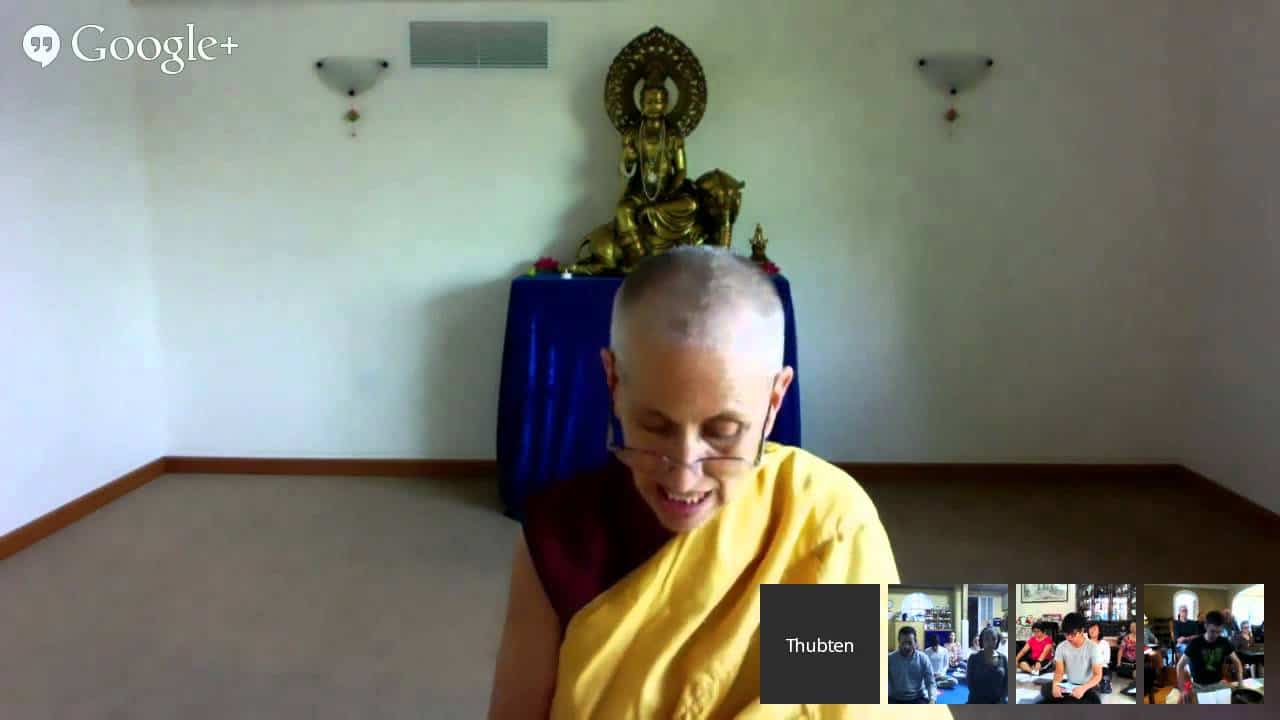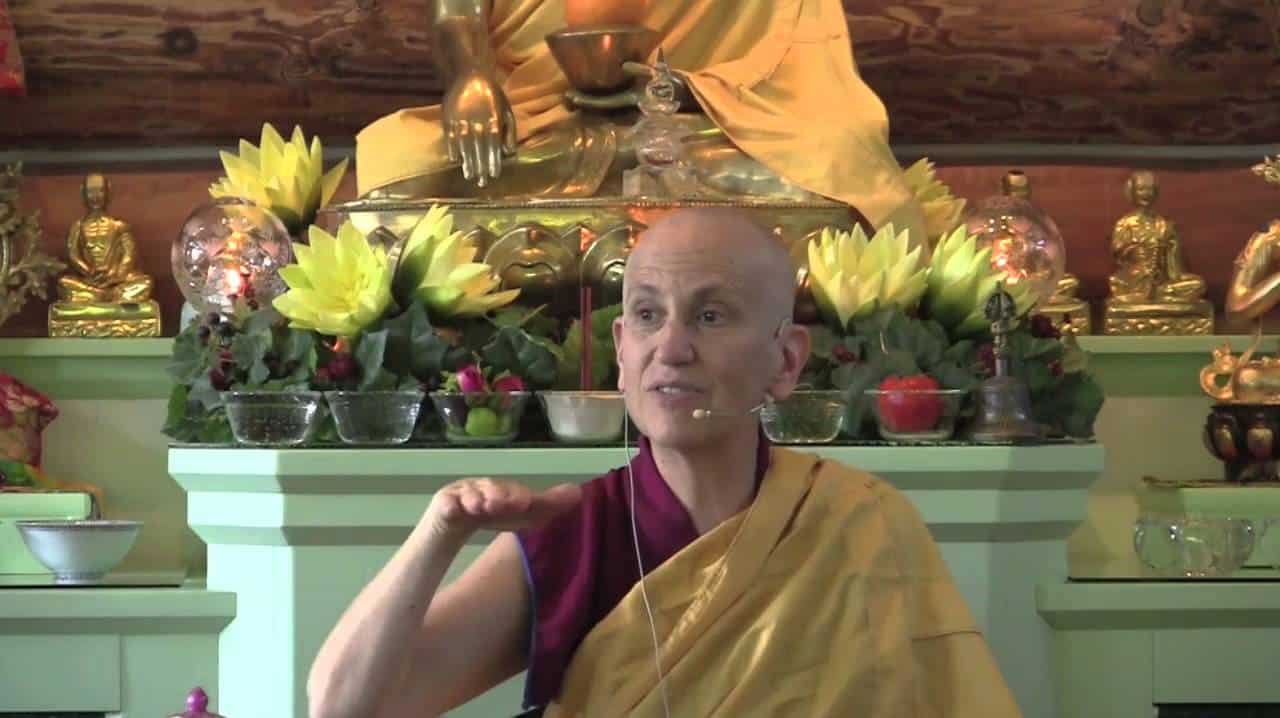Verses 14-15: The trickster and the exhibitionist
Part of a series of talks on Gems of Wisdom, a poem by the Seventh Dalai Lama.
- If we do not put the teachings into practice, we are stealing from those who support us
- Our practice can be more external show than inner practice
Gems of Wisdom: Verses 14-15 (download)
Next verse:
Verse 14
Who is the trickster stealing from others while living in a remote hermitage?
The person in retreat, supported by others who spends his time in vain.
The “trickster stealing from others while living in a remote hermitage.”
You usually think somebody goes to do retreat and, oh, they’re practicing purely, waking up early and doing lots of purification and doing their four sessions and doing their other sessions in between their four sessions, and being very mindful. So people are very inspired so they support that person. And then that person goes to retreat and they’re sleeping late and they’re making all their own favorite foods and they’re taking long walks…. In the time of the Seventh Dalai Lama they didn’t have TV, but now they do. So, you know, they’re watching TV….
It’s extremely negative karma to tell people you’re doing a spiritual practice and have them support you, and then you not do it. That’s why it says here, “Who is the trickster stealing from others.” Because it is stealing. People are giving money to support people who are practicing, but this person is taking the money and running, not doing their side of the deal.
It doesn’t matter if you’re doing retreat or whether it’s a monastic situation like this, where we’re living here. When people give us money and give us support it’s because they want us to practice, so if we’re not practicing, and we’re sleeping late and we’re renegotiating our precepts and we’re complaining all of the time. And, you know, we miss teachings, or we come to teachings and take notes but we don’t review the notes so we don’t remember anything…. Then it’s effectively stealing from the people who are very kindly supporting. So that becomes quite heavy negative karma to do that. As well as, you know, you have the perfect situation and then you waste it by letting the mind get distracted and do all sorts of other things instead of what we came here to do.
Verse 15
Who is the hollow exhibitionist resembling a child wearing the ornaments of a god?
The performer of tantric rituals who is without the inner yogas.
In certain Buddhist rituals there are sometimes a lot of external things going on. You have bells and drums and different instruments, and horns. And you make these offerings that you put on the altar that are certain shapes and very colorful. And lots of things going on. Brocade and big hats and high thrones. I mean, Tibetan Buddhism, if you want a show, this is it, you know? I mean there’s all sorts of external stuff going on. And the purpose of it all is actually to transform the mind. But this is talking about somebody who is doing these rituals without the corresponding meditation, so they’re not really meditating while they’re doing the rituals, they’re just doing them. So it becomes an exhibition of a lot of stuff without any inner practice.
Again, this is a case of somebody wasting their own time and energy. Because just doing something externally that looks like spiritual practice doesn’t change your mind. You have to really change your mind. And then also, it deceives other people. Because other people sometimes, they love this kind of stuff.
When I go to Malaysia and teach they tell me that I’m one of the few Tibetan teachers who actually teaches the Dharma. The rest of them mostly do rituals. On the other hand, the people there love the rituals and that’s what they want. So you have this two-way thing, actually, you could say both parties are benefiting, but you could also say both parties are deceiving each other. Because people sometimes, they don’t want to go to teachings. Because if you go to teachings you have to listen, you have to think about things. If you make a donation and ask somebody to do a ritual, then the more the ritual is in another language that you don’t understand, then the more holy it must be, and the more you can just sit there and say they’re doing all the work and I’m going to get some good luck from this. And this way of thinking is…. Many people are attracted to that. Kind of, “Oh, they’re doing something mystical, magical, I don’t understand it but look at that with the instruments and the brocade and the throne, and this.” You know? But if you’re not doing the inner practice then it’s really hollow, it’s really putting on a show. He’s calling out those people who are doing that.
The Seventh Dalai Lama doesn’t mince words, does he? Very good. A real teacher.
Venerable Thubten Chodron
Venerable Chodron emphasizes the practical application of Buddha’s teachings in our daily lives and is especially skilled at explaining them in ways easily understood and practiced by Westerners. She is well known for her warm, humorous, and lucid teachings. She was ordained as a Buddhist nun in 1977 by Kyabje Ling Rinpoche in Dharamsala, India, and in 1986 she received bhikshuni (full) ordination in Taiwan. Read her full bio.


